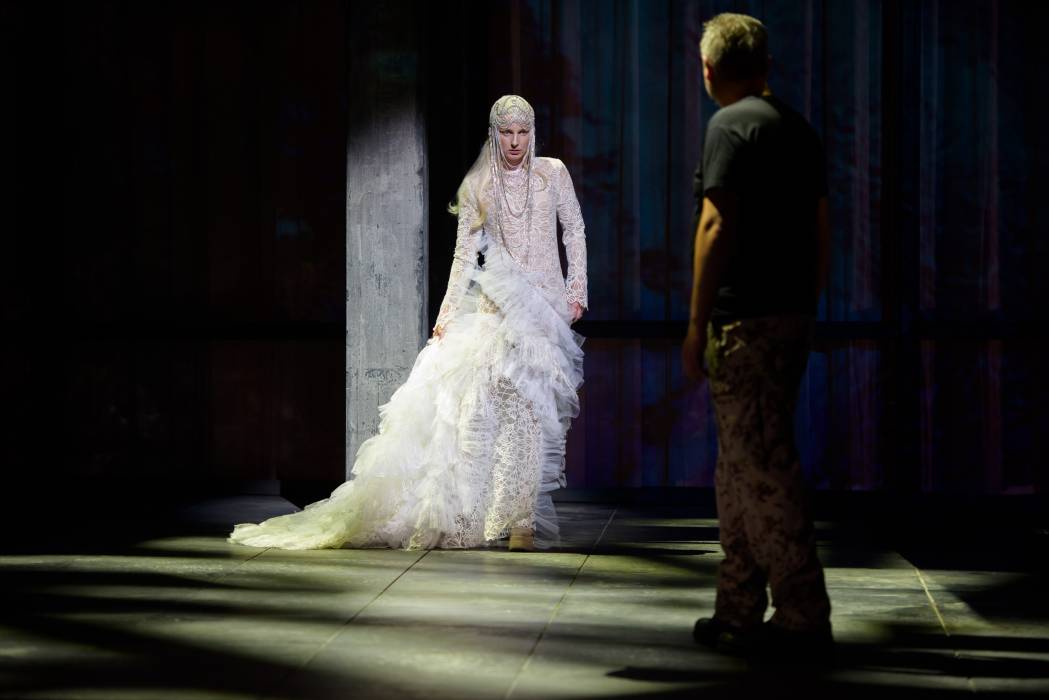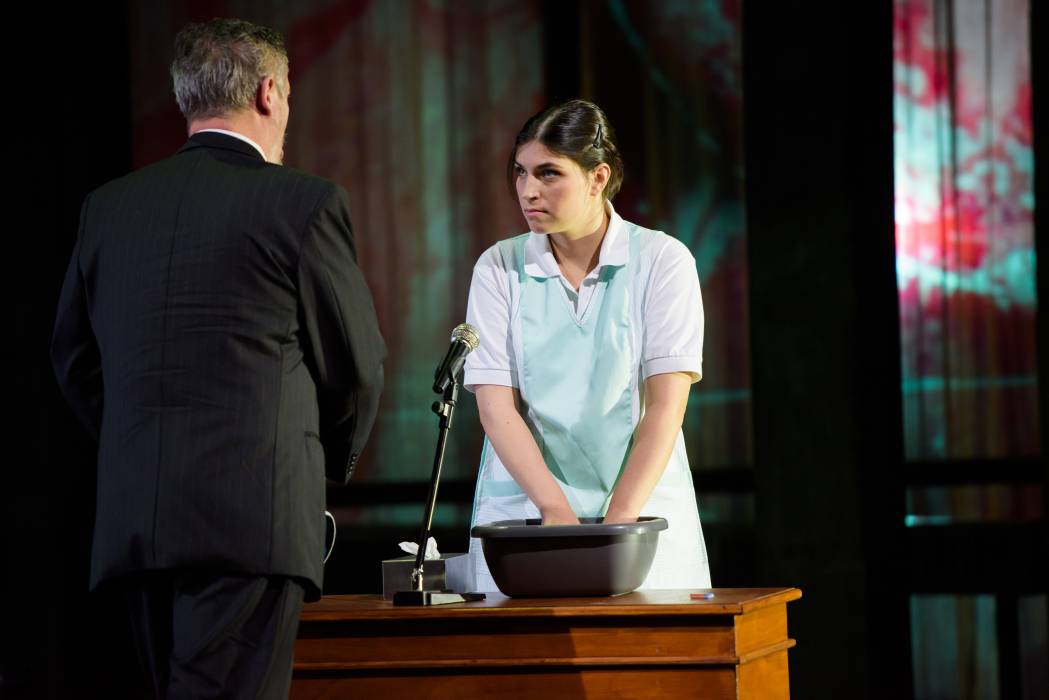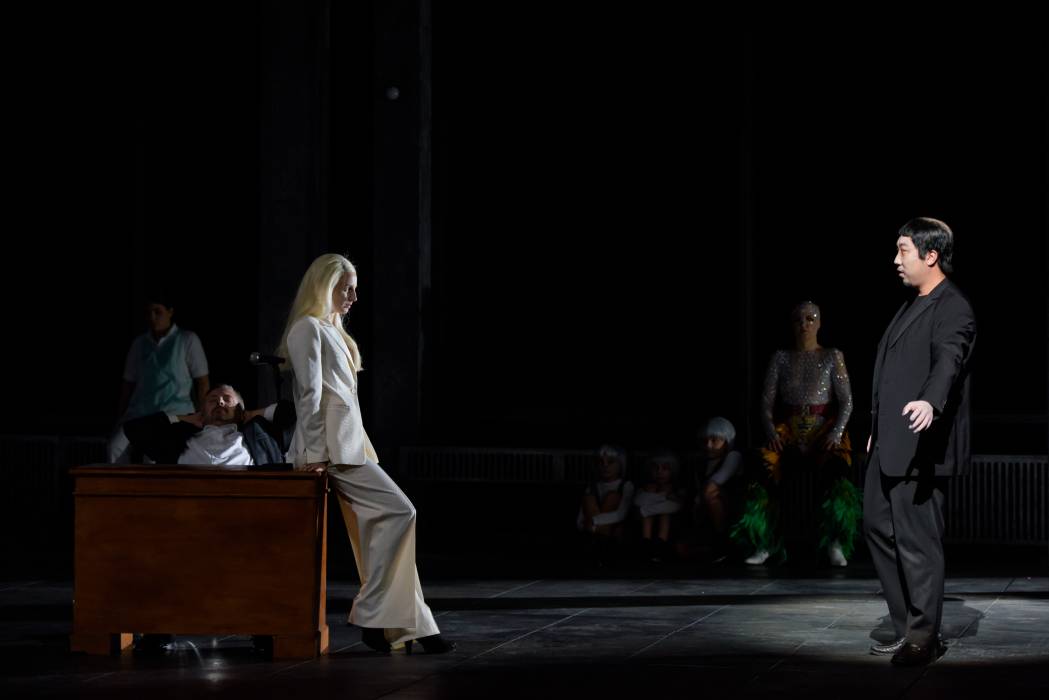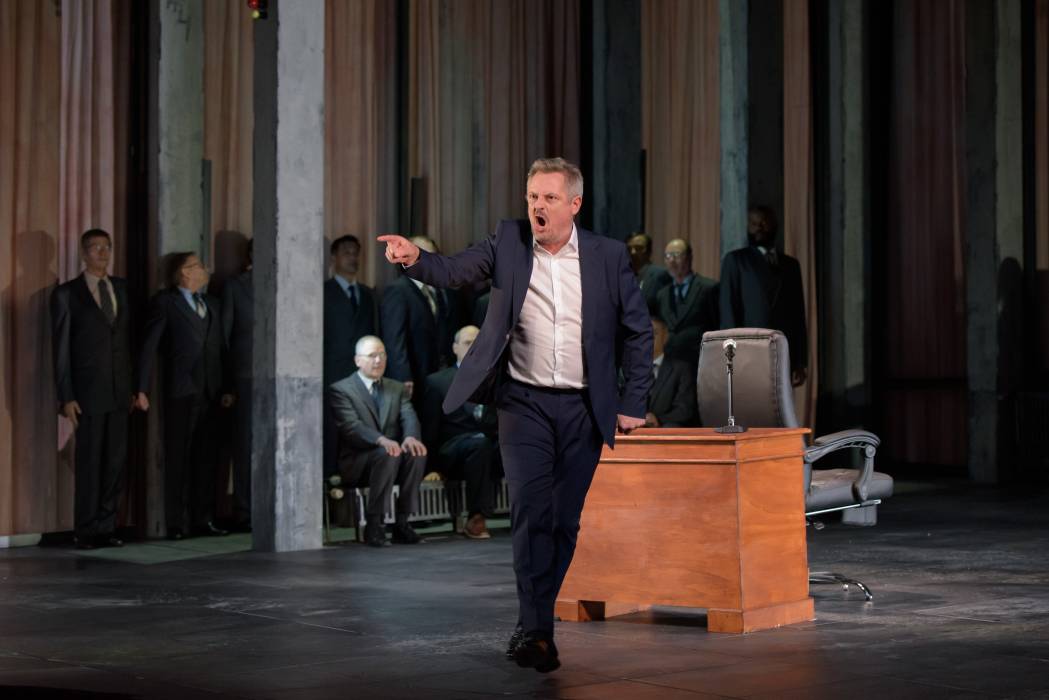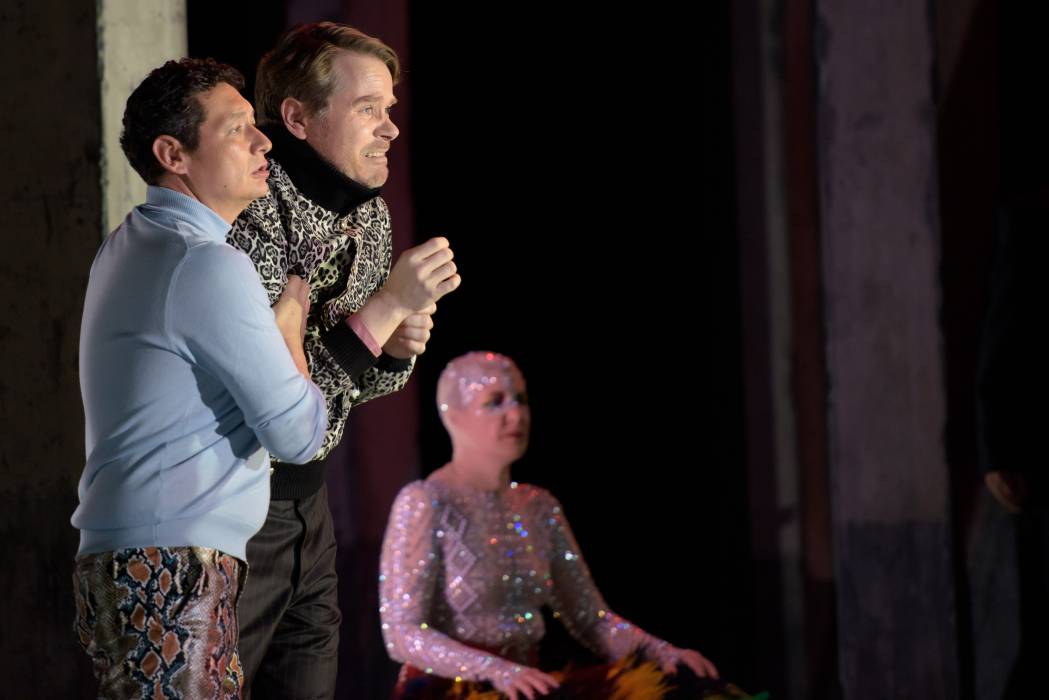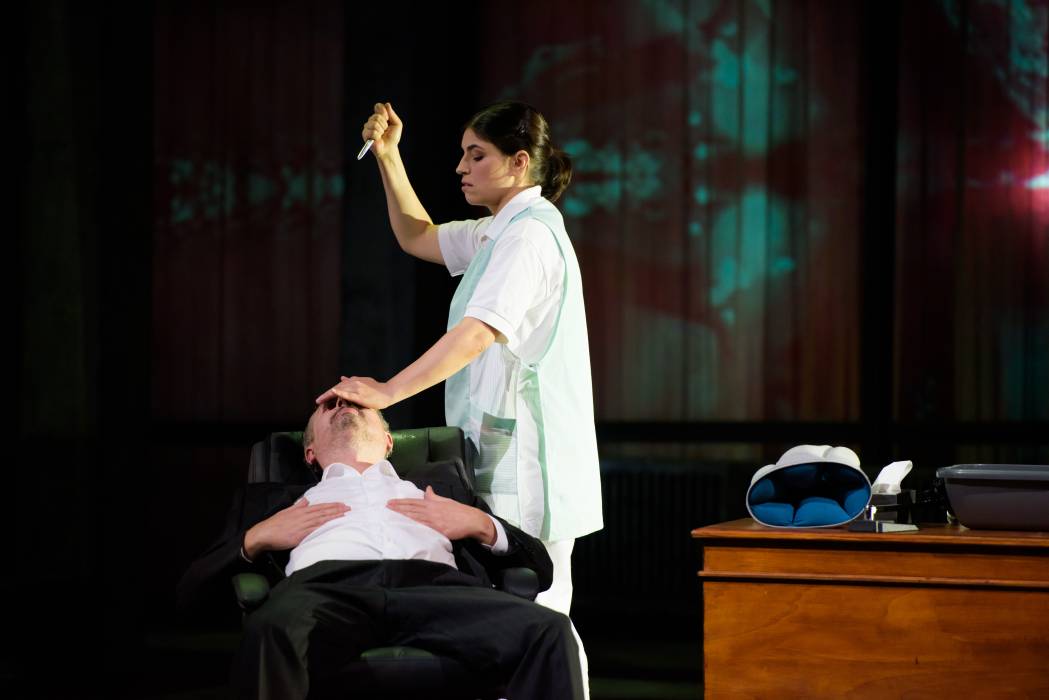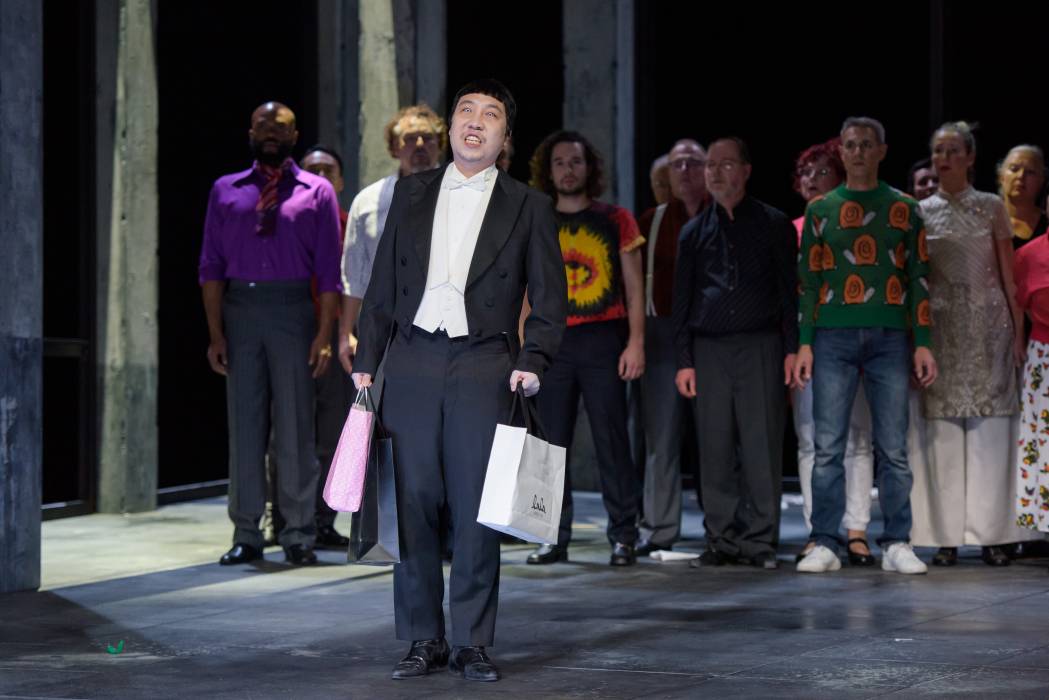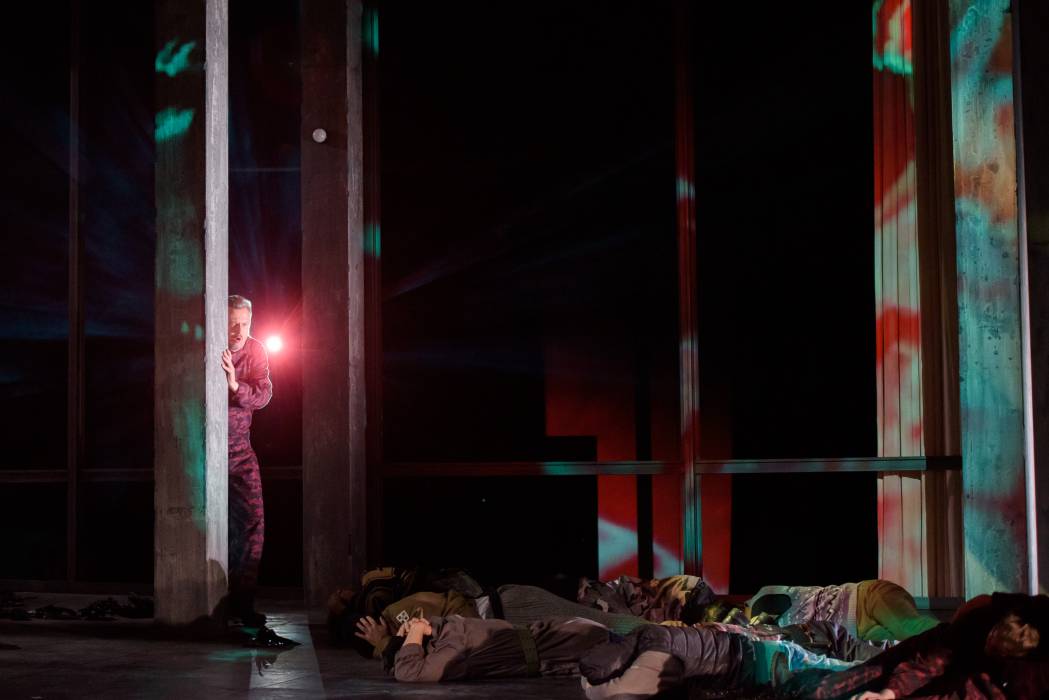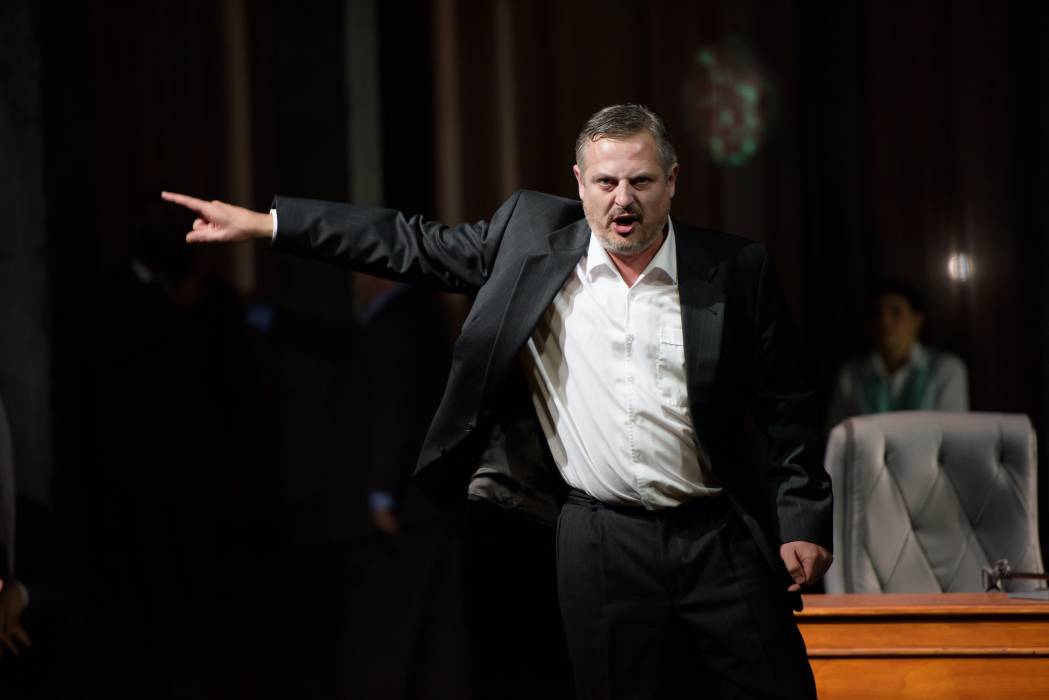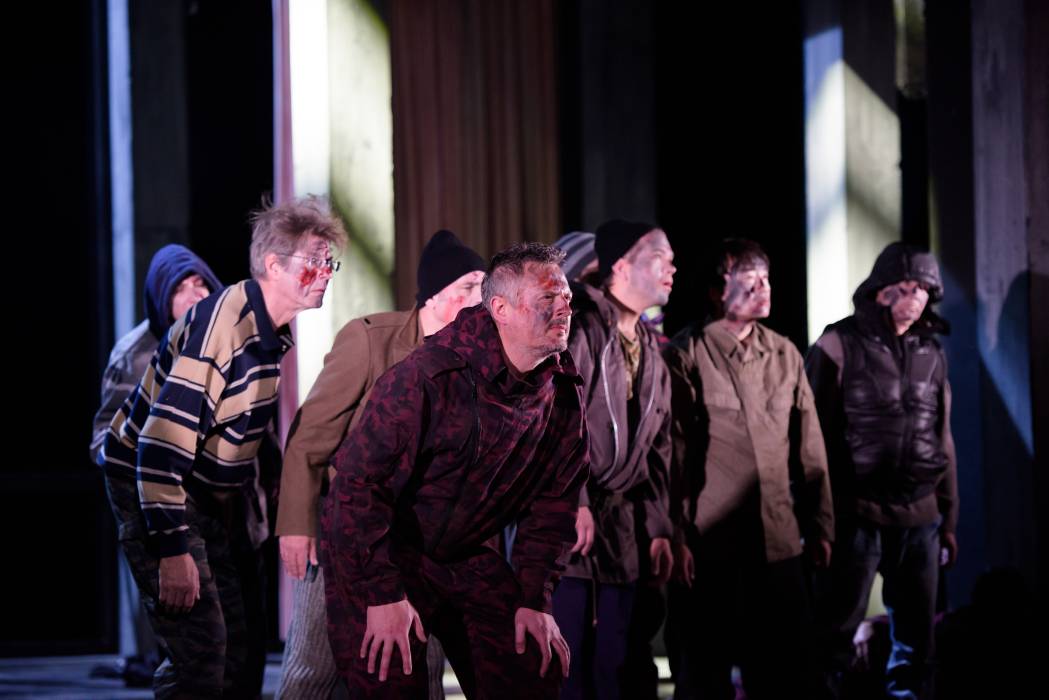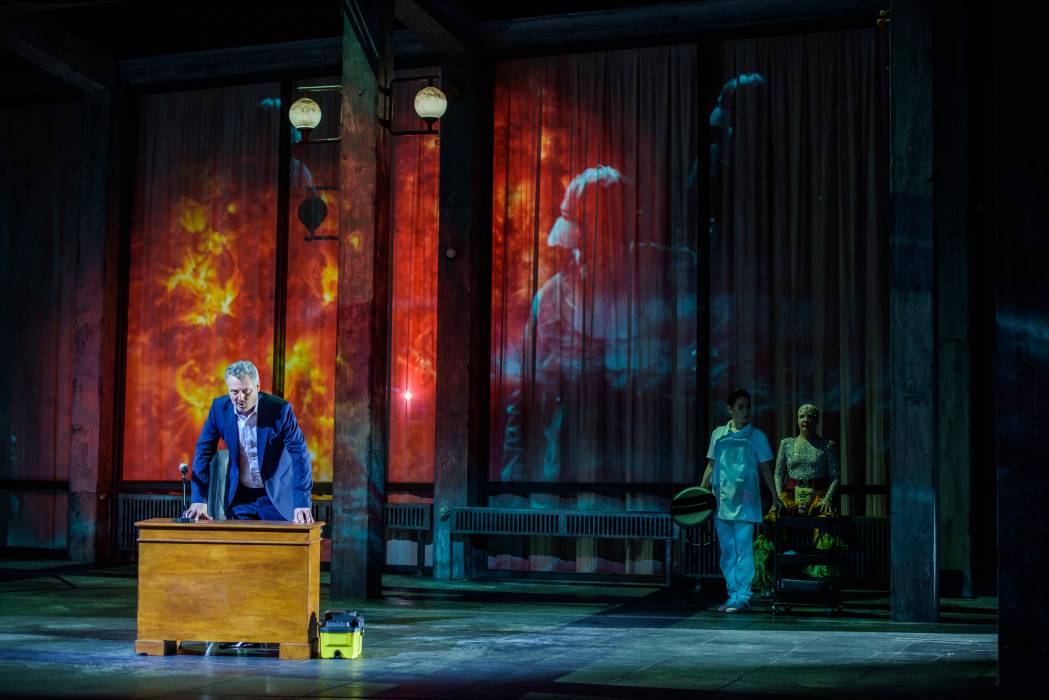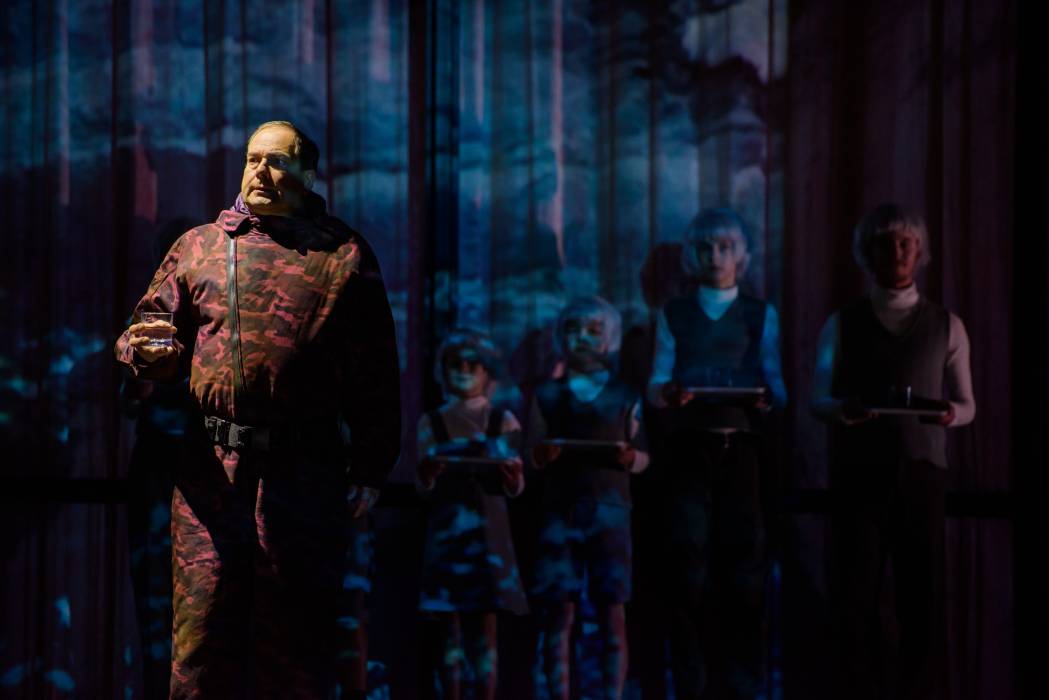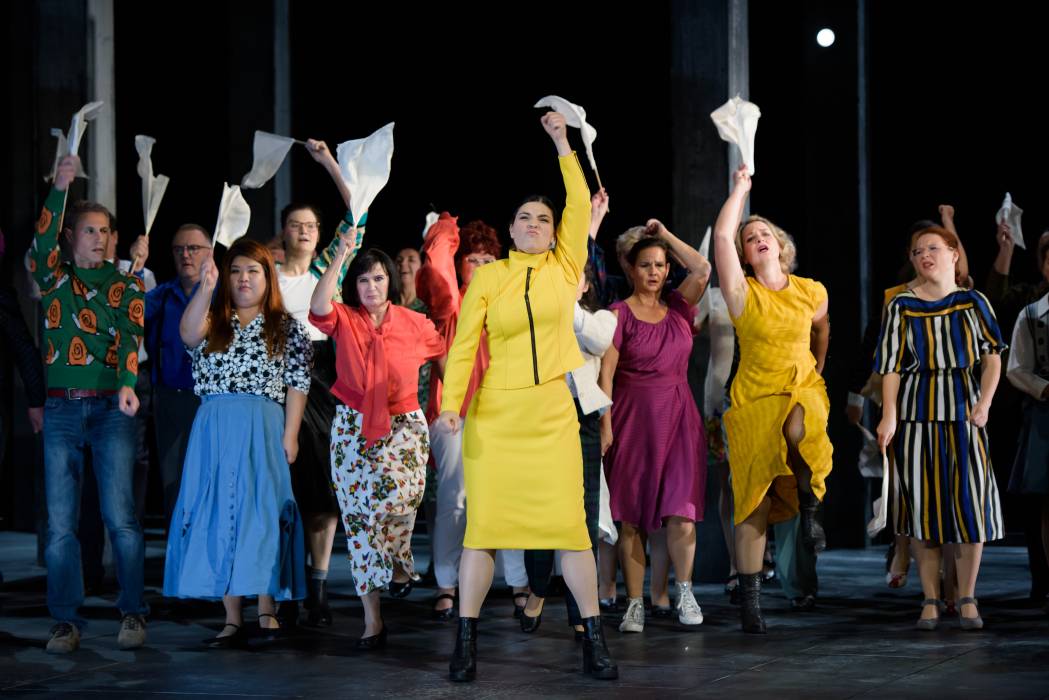»Der Mittelakt der Oper, in der Schemacha auf ihrer sehr persönliche auf Verführung setzenden ›Kriegsführung‹ baut, ist vor allem deshalb der poetisch-musikalische Höhepunkt des Abends, weil sie von Anja Rabes mit einem Kostümtraum in Weiss bedacht wurde und Ylva Stenberg als Königin in des Wortes doppelter Bedeutung der blanke Wahnsinn ist. Grandios, wie sie eine utopische Welt imaginiert und Dodon seine eigene Begrenztheit vorführt, ohne ihn (als Mann und Zar) komplett zu demontieren. Mit einem atemberaubenden Tanz (durchaus im Salome-Format) als Höhepunkt. Der stimmgewaltige, eloquente Tadas Girininkas belässt dem Willkürherrscher das Quäntchen Verführungskraft, mit dem die regierenden Machos dieser Welt auch heute gerne spielen. (…) Der Jubel in Weimar war heftig und traf alle Beteiligten. Die schöne Zarin freilich am heftigsten.«
(Joachim Lange, 6.11.2022, Die Deutsche Bühne)
Lesen Sie die ganze Rezension hier
»Am Deutschen Nationaltheater Weimar verbinden sich Stephan Kimmigs poetische Dystopie, ein opulenter wie intelligenter Triumph der Staatskapelle unter Andreas Wolf und eine brillante Ensemble-Leistung.(…) Im leicht verschobenen Raum mit Stahlsäulen betoniert Katja Haß die nicht so sein sollenden Verhältnisse. Jörg Hammerschmidts Licht ist visualisierte Poesie mit Kontur, Sinn und Form. Die Videos von Mirko Borscht begnügen sich nie mit der Bebilderung von Gesagten: Stilistisch ausgezeichnet, da die Musik nicht entmündigend. Kimmigs Inszenierung schärft, verdeutlicht und lässt trotzdem viele, viele Freiräume für das Unsagbare und Ungesagte.«
(Roland H. Dippel, 6.11.2022, neue musikzeitung online)
Lesen Sie die ganze Rezension hier
»Die Inszenierung reizt durch ihre Ambivalenz, die Offenheit des Bühnenbilds, die Enge des Zeltes im zweiten Akt, das dunkle Schlachtfeld, die strahlende Eleganz Schemachas, das Grau, das Bunt – ambivalent, wie unsere Protagonisten selbst. Durch dieses Spiel erlangen die Kunstfiguren eine grundsätzliche Tiefe und Ernsthaftigkeit, bei der die Grenzen zwischen Gut und Böse verschwimmen. Das Deutsche Nationaltheater verwandelt sich in eine Welt zwischen Diesseits und Jenseits (…).«
(Elisabeth Tänzler, 6.11.2022, klassik-begeistert.de)
- Andreas Wolf (Musikalische Leitung)
- Stephan Kimmig (Regie)
- Katja Haß (Bühne)
- Anja Rabes (Kostüme)
- Mirko Borscht (Video)
- Judith Drühe (Dramaturgie)
- Tadas Girininkas (König Dodon)
- Jörn Eichler (Prinz Gwidon)
- Alik Abdukayumov (Prinz Afron)
- Andreas Koch (General Polkan)
- Sarah Mehnert / Marlene Gaßner (Amelfa)
- Taejun Sun (Der Astrologe)
- Ylva Sofia Stenberg (Die Königin von Schemacha)
- Heike Porstein (Der goldene Hahn)
- Opernchor des DNT
- Statisterie des DNT
- Staatskapelle Weimar
